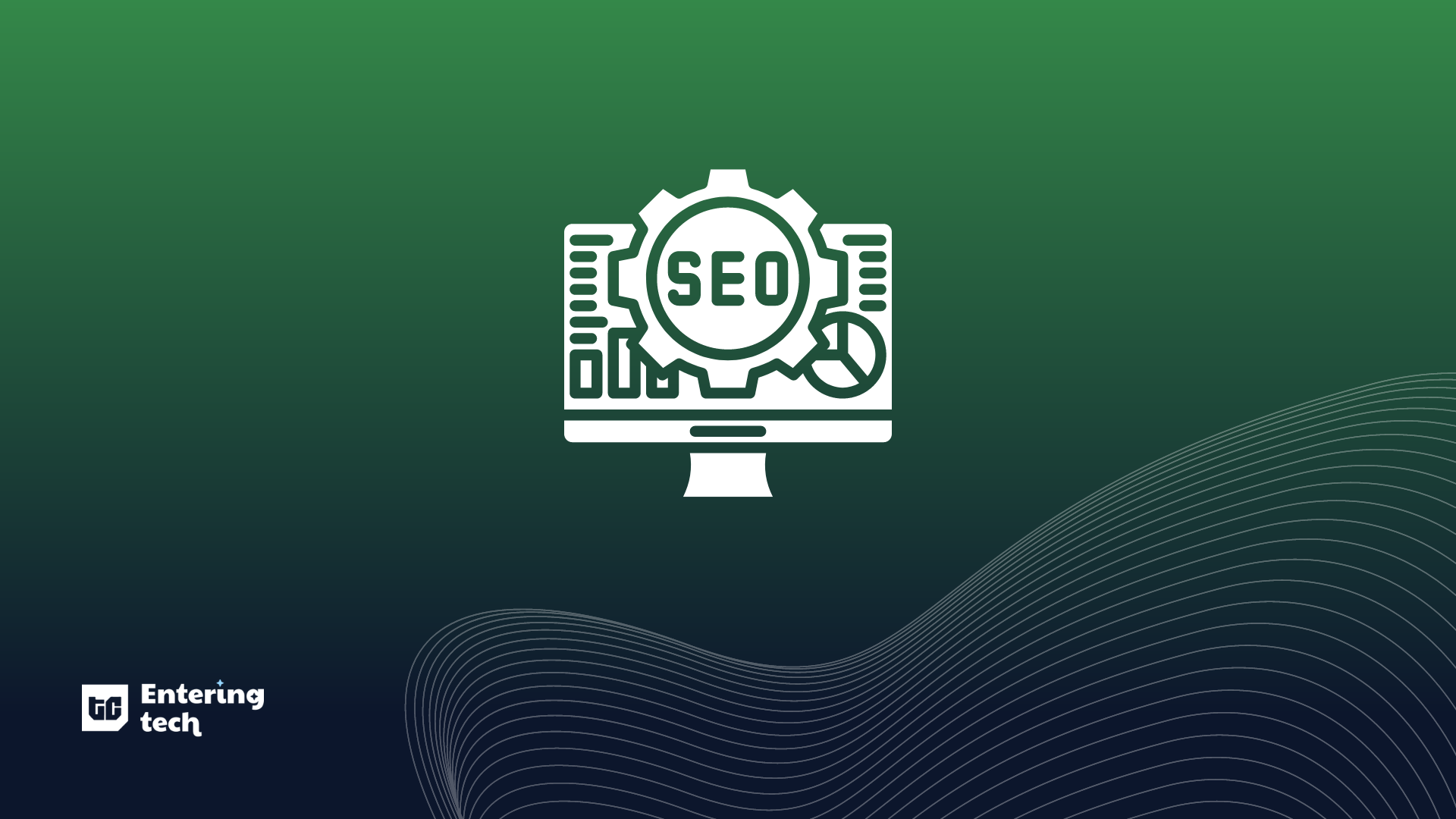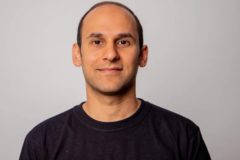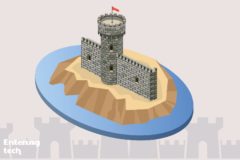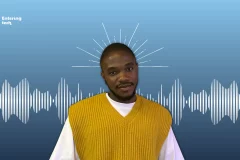
23 || November || 2022
View in BrowserBrought to you by

#Issue 013
How to become an SEO Specialist
Greetings, ET readers 🖖🏾
SEO specialists help businesses take their keyword optimisation game from 0–100 in a reasonable amount of time. You know when you Google an event name or product and the information you searched for pops up on the first page of Google search? That happened because someone who understands SEO did their job properly.
The world of SEO careers is very diverse. You can be an SEO writer, manager, analyst, and editor. TechCabal and Zikoko both have SEO writers who are primarily responsible for writing articles using keywords and phrases curated by editorial team leads.
A career in SEO is perfect for people who enjoy writing and reviewing listicles, guides, and highly-engaging content such as, “10 cool things you didn’t know your iPhone could do” and “the best tech gadgets to pack in your travel bag.”
In today’s edition of #EnteringTech🚀, we discuss everything you need to know about landing your first or second job as an SEO specialist.
Happy reading 🙂

Tech trivia questions
- How many websites currently exist on the World Wide Web?
- What was the first search engine on the internet?
- How many people scroll past the first page of a search engine result page (SERP)?
Answers are at the bottom of this newsletter.

Who is an SEO Specialist?
Before we even talk about who an SEO specialist is, let’s explain SEO.
SEO is short for “Search Engine Optimisation” and it’s the process of making sure a website and its content are easily findable and relevant to users.
There are millions of websites in the world, and some are just duplicates of each other. By using SEO, some websites increase their visibility on search engines and so they get more traffic than others.
For example, if you enter “What is SEO” in your Google Search Bar, you’ll get 823 million results; over 91 million pages of results on Google. But no one can visit all 823 million websites, so search engines like Google use SEO tactics to rank websites.
The best and most relevant ones will be on the first page. That’s where you want to be. If users can’t find content on the first page of the search engine result page—or SERP—then such content will go unread.
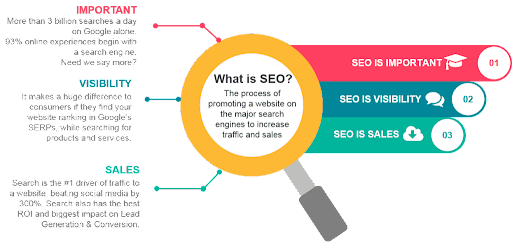
🤣 A popular marketing joke states that the best place to hide a body is on the second page of any SERP because people don’t scroll past the first page.
So how do websites fight for the top spot on SERP? They do it via SEO, and SEO specialists are the champions of this game.
They help shine the spotlight on you!

How SEO works
Careers in SEO can vary. There are SEO writers, SEO analysts, SEO managers, and SEO marketers. For today’s edition of #EnteringTech🚀, we’ve classified them as “SEO Specialists” because their work is closely related.
So how do these specialists help websites go from page 100 to page 0?
Well, Google and other search engines classify results based on ranking factors. We can’t list all of these ranking factors here as they are numerous, but SEO specialists know most of them and they have a variety of skills that they use in improving the ranking of websites.
Basically, there’s Off-Page and On-Page SEO Optimisation and both require a variety of skills. These skills include writing, content marketing, basic coding skills like HTML, web design, link building, and analytics.
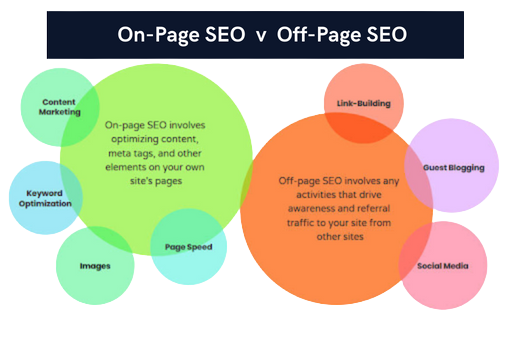
➡️ In On-Page Optimisation, writing and content creation are used to ensure that your website content contains keywords that people are searching for.
💡 A keyword is the phrase most people type into their search bar. This can be “How to buy MTN data online”, or “men’s shoes Nigeria”. Sometimes, keywords don’t make sense grammatically but it’s what people are searching for. The more keywords appear in content, the more it helps a site’s SEO.
Specialists also make sure that these keywords are in titles, meta descriptions, excerpts, sub headings, image names and alt texts.
➡️ In Off-Page Optimisation, specialists focus on getting content on websites other than the ones they’re working on. This can include link building, which is asking other websites to link back to a specific page or content, as well as guest blogging and social media networking.

Hear it from an SEO Analyst
This analyst knows all about optimising his SEO journey.
Joseph Asaah is an SEO Specialist/analyst at Big Cabal Media, using data & context to grow organic search traffic to Africa’s most important, niche digital publications.
Q. What does an SEO specialist/analyst do?
An SEO specialist/analyst uses data to inform website optimisation activities around content, and tracks website performance to improve relevant customer/user acquisition through organic search engine traffic.
Q. What are the hardest and easiest parts of becoming an SEO specialist?
I think getting a firm grasp on technical SEO is the single hardest part of the journey to becoming an SEO specialist. The usual crutch is to depend on your developer for this aspect of things but I recommend pushing yourself to have at least a passable understanding of how a website works under the hood in relation to how they appear on search engines.
I personally think keyword research is the easiest part of SEO to grasp. Anyone can understand it and start putting together useful keywords for their brand in record time.
Q. Is SEO something you stumbled upon or is it a role you chose? Basically, why are you an SEO analyst?
I kind of chose and stumbled upon it at the same time. When I joined my current organisation, I could choose what platform I wanted to grow and so I settled on Organic Search, AKA SEO. I already had some experience with video search; I grew a youtube channel from 0—100,000+ subscribers, so it felt like familiar territory I could settle into.
Q. How did you learn SEO? And what struggles did you face while doing it?
My learning journey can be broken down into 6 broad categories/sources: google documentation, articles, Ahrefs & SEMRush learning resources, YouTube, Newsletters and a hands-on approach. These are the pillars of my SEO learning journey. The SEO community is big on sharing the knowledge which means almost anything you’re looking for is out there somewhere for free. It’s left to you to consume this knowledge, take what’s relevant to your unique problems and apply them. That’s where the hands-on approach comes in.
Q. What are the misconceptions people have about SEO?
I encounter three misconceptions about SEO a lot.
The first one is around content creation and optimisation. Many SEOs and businesses who want to attract users/customers from search engines focus too much on what the search engine’s new algorithm is doing and forget that the most important element in SEO is the user.
The second misconception is that SEO is free traffic. It is not. You pay for content, tools, talent etc. Businesses should definitely figure out a way to measure that cost against their goals and determine if it’s worth their while.
The third misconception is people think SEO is a push platform like social media, where you can put out any kind of content and still get people to see and engage with it even if they weren’t looking for it. Search Engines are called search engines for a reason. If no one is looking for it, you’re probably wasting scarce resources on content that wouldn’t move the needle for your business. It is why data is very essential to be successful as an SEO specialist.
Q. What resources should someone looking to become an SEO specialist consume?
I’ll say, start off with Google Search Essentials (aka Webmaster Guidelines). It’s a great place to start for anyone looking to become an SEO specialist. Other resources I’ll recommend are Search Engine Journal, Ahrefs Academy, SEMRush Academy, Byte Byte Go Youtube, Search Off The Record Podcast, Edge of The Web SEO Podcast, and The SEO Sprint Newsletter.

You can become an SEO Specialist too
Here are the courses you need if you want to get started on SEO.
- Price: Free (audit only, no certificate)
- Duration: 120 hours
- Tools Needed: Laptop + internet access
- Level: Beginner – Intermediate
- Price: Free (audit only, no certificate)
- Duration: 25 hours
- Tools Needed: Laptop + internet access
- Level: Beginner
- Price: Free
- Duration: 23 hours, 26 minutes
- Tools Needed: Laptop+ internet access
- Level: Intermediate – Advanced
- Price: Free
- Duration: 4 hours
- Tools Needed: Laptop+ internet access
- Level: Intermediate – Advanced
- Price: Free (for the first month)
- Duration: 12 hours, 34 minutes
- Tools Needed: Laptop+ internet access
- Level: Beginner – Advanced

Ask a techie
Have any questions about tech in Africa? Ask away and we’ll find answers for you.👇🏾

Tech trivia answers
- There are presently over 2 billion websites on the World Wide Web but just over 400 million are still active.
- The most widely-used search engine today is Google, with over 92% of the market share. The first search engine, however, was a tool called Archie which was released in 1990.
- Over 75% of users never scroll past the very first page of an SERP. This is why there’s a big tech opportunity in SEO.

Opportunities
- The Julius Berger Scholarship Scheme 2022 is now open to female Nigerian undergraduates who are studying engineering. Selected applicants will get full academic scholarships for the duration of their study in any State or Federal Nigerian university. Apply by December 5.
- Applications are now open for CyberGirls Fellowship, a free 1-year program that equips girls and women aged 18-28 years old with cybersecurity skills. Apply by December 5.
- The Goldman Sachs Africa & Caribbean Recruiting Programme is currently receiving applications from students in Africa and the Caribbean who will be graduating in 2023 and 2024. It is an interactive multi-day programme designed to introduce students to the financial world through hands-on experience. Apply by December 7.
- The Research Scholar Program is currently accepting applications from early-career professors who are pursuing research in fields relevant to Google. It is focused on funding world-class research conducted by early-career professors. Apply by December 1st.
- Undergraduate and graduate students can apply for the Student Summer Research Fellowship (ETH SSRF) Programme to gain their first research experience in an area of their choice. The fellowship provided by the Computer Science Department of ETH takes place during two summer months and is open to all students worldwide. Apply by December 15th.
- The African Culture Fund Academy Programme 2023 is open to applications from female artists and entrepreneurs in West and Central Africa. Sixteen selected participants will partake in a two-week paid training programme in Mali where they will engage in workshops and one-on-one sessions with professionals. Apply by November 25.

Jobs
- Binance – SEO Content Specialist – Lagos, Nigeria
- Klasha – Senior Product Manager, Senior Product Designer – Lagos, Nigeria
- ETAP – Growth Associate – Africa (Remote)
- Digital Vision East Africa Limited – Android Developer – Nairobi, Kenya
- Optica Limited – Data Analyst – Nairobi, Kenya
- Habaripay (GTCO) – Front End Developer, UI/UX Designer – Nigeria
- Fooji Inc –Full Stack Developer – (Africa) Remote
- MTN – Senior Manager, Digital Marketing – Nigeria
- Big Cabal Media – Learning & Development Executive, Software Developer, Commercial Director, Sales Associate – Lagos, Nigeria (Hybrid)
- Zikoko –Money Writer, Inside Life Writer, HER Writer, Copy Editor – Remote
- TechCabal – News Editor – Africa
There are more jobs on TechCabal’s job board.
Disclaimer: TechCabal is not affiliated with or associated with jobs and opportunities listed on all its job boards and newsletters. All applicants bear the responsibility of researching about the roles and companies they apply to.
No longer want to receive these emails? Unsubscribe here







